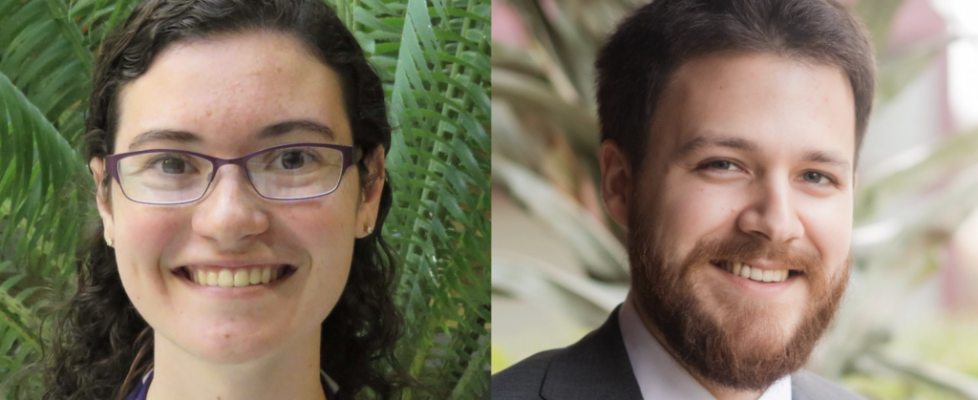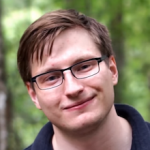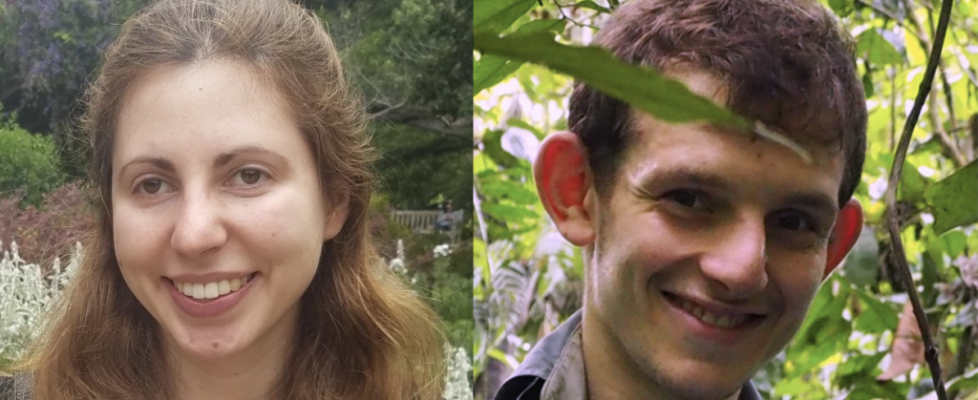Robot Learning; Toad Navigation – Apr 27
Wonderfest Science Envoys are early-career researchers with special communication skills and aspirations. Following short talks on provocative modern science topics, these two Science Envoys will answer questions with insight and enthusiasm:
• UC Berkeley computer scientist Dr. Ellen Novoseller on Machine Learning in Robots — How do robots use machine learning algorithms to behave properly in uncertain surroundings? Two examples highlight the issue: a household robot that learns to manipulate everyday objects, and a personalized robotic exoskeleton that helps mobility-impaired people to walk.
• Stanford organismal biologist Daniel Shaykevich on Toads in Space: Studying Navigation in Amphibians — While we know quite a bit about how mammals use their brains to understand their spatial surroundings, we know much less about how frogs and salamanders do it. What is going on inside the amphibian brain during navigation? And why would this be interesting to humans?
Bay Area Science Festival [https://www.bayareasciencefestival.org]
This event is free. But what value do these science insights have FOR YOU? Accordingly, please use the space below to contribute to nonprofit Wonderfest, and help to promote the scientific outlook broadly — as through our outstanding Science Envoy Program.

Animal Behavior; Machine Learning – Apr 11
Wonderfest Science Envoys are early-career researchers with special communication skills and aspirations. Following short talks on provocative modern science topics, these two Science Envoys will answer questions with insight and enthusiasm:
• UC Berkeley zoologist Erin Person on What’s the Point? Animal Behavior and the Value of Niche Science — We share our planet with many strange and wonderful animals. As David Attenborough has taught us, their ways of life can be fascinating. But beyond satisfying our curiosity, studying animals can teach us about evolution, ecosystems, and even ourselves.
• Stanford statistician Ben Seiler on Understanding Machine Learning — Computers automate important decisions across our society. Unfortunately, we cannot always understand how and why complex algorithms and statistical models are making these decisions! How can we make such machine learning more transparent and interpretable?
This event is free. But what value do these science insights have FOR YOU? Accordingly, please use the space below to contribute to nonprofit Wonderfest, and help to promote the scientific outlook broadly — as through our outstanding Science Envoy Program.
Deepfake Detection – Jan 20
Computer vision systems now surpass the performance of human experts in fields like radiology and dermatology. Can they also help us discern real videos from deepfakes — videos manipulated by artificial intelligence? This Zoom presentation will provide an overview of the state-of-the-art machine-learning models for detecting deepfakes. It will also present evidence that reveals how most people are more accurate at spotting deepfakes than the best machine-learning models. We will examine results of a recent experiment suggesting that humanity’s specialized ability for recognizing faces lies at the heart of our superior performance. (No face shown above belongs to a real person!)
Our speaker, MIT’s Matthew Groh, is a PhD student and research assistant at the MIT Media Lab where he is a member of the Affective Computing Group. Before MIT, Matt cofounded Proprio Labs, worked as a data scientist at Qadium, RaiseMe, and DARPA, and was a research assistant at Innovations for Poverty Action and the World Bank.

Matthew Groh
What value does this admission-free experience have for you? Accordingly, please contribute to nonprofit Wonderfest via the Eventbrite portal, below.

What is AI? – Sep 3
The artificial intelligence (AI) that we've seen in fiction bears little resemblance to the AI we have in the real world. Stanford PhD researcher Andrey Kurenkov will analyze the real-world meaning of AI, describe what researchers in AI actually do, and explore how impressive — or not — recent AI achievements really are.
Andrey Kurenkov does research at Stanford's Vision and Learning Lab. He produces the weekly Skynet Today newsletter ("Putting AI News in Perspective"), and he is a Wonderfest Science Envoy. Andrey will answer questions during the video premiere via the YouTube "chat" bar, and afterward, via live Zoom session.

Andrey Kurenkov
Map: [https://us02web.zoom.us/j/89677333093]
First, at 8:00pm, watch the YouTube video Premiere of "What is AI?" as Andrey Kurenkov answers questions via the YouTube chat bar: https://youtu.be/h5vpSfB5l3o
Then, immediately after the video, log in to a LIVE Zoom Q&A session with Andrey: https://us02web.zoom.us/j/89677333093
Please consider helping Wonderfest to produce events like this — sharing the clear-eyed optimism of science with the Bay Area ... and the world — via the inaptly named "Tickets" block, below.

